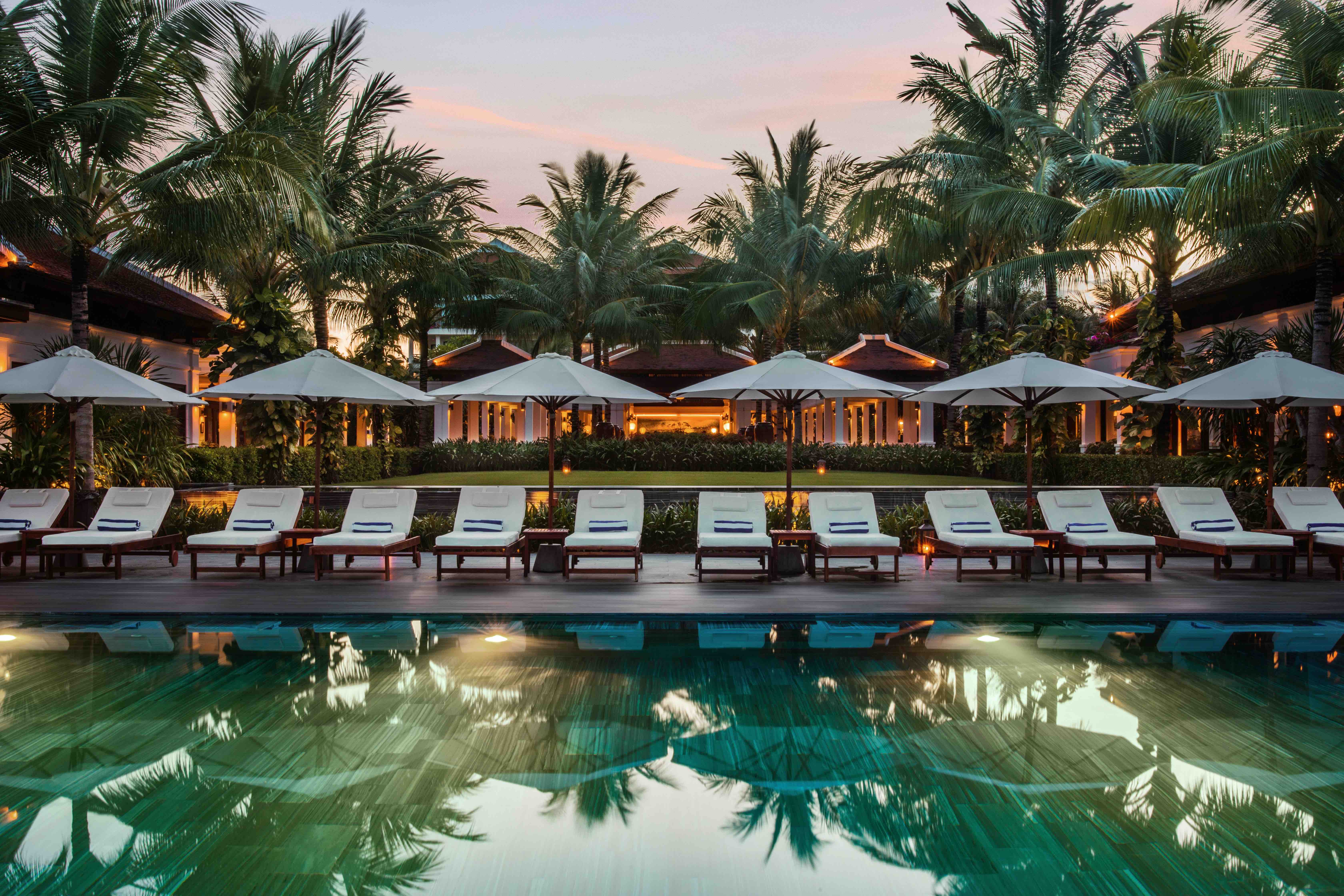Social media has become a pivotal tool for businesses across all industries, and the hospitality sector is no exception. The influence of social media on consumer behaviour is undeniable, shaping how potential guests perceive and interact with brands. For hotels, leveraging social media effectively is no longer a mere option but a necessity. It can significantly enhance online visibility, attract potential guests, and improve the overall guest experience. A robust social media presence can transform a hotel from a mere place to stay into a dynamic brand that engages with its audience, fosters loyalty, and drives direct bookings.
The power of social media lies in its ability to reach vast audiences and create meaningful interactions. According to a 2022 report by Hootsuite, over 4.6 billion people globally use social media, with users spending an average of 2.5 hours per day on various platforms. This presents an unprecedented opportunity for hotels to connect with travellers, showcase their unique offerings, and build a community of loyal guests. However, navigating the complex landscape of social media requires a strategic approach tailored to the specific needs and goals of the hotel.
This blog post delves into the intricacies of social media strategies for hotels, providing detailed insights, research, statistics, and actionable examples. Whether you want to boost your hotel’s visibility, engage with guests more effectively, or enhance your reputation, the strategies outlined here will equip you with the knowledge and tools to succeed in the ever-evolving digital world. From content creation to influencer partnerships and analytics, we will explore every facet of a comprehensive social media strategy tailored for the hospitality industry.
The Importance of Social Media for Hotels
Social media platforms are not just about sharing photos and updates; they are powerful tools for marketing, engagement, and customer service. According to a 2022 report by Statista, over 4.6 billion people worldwide use social media, which is projected to grow. For hotels, this represents a vast audience to reach and engage with.
Key Benefits of Social Media for Hotels
- Enhanced Brand Visibility: Regular and strategic posting on social media platforms can increase a hotel’s online presence, making it more discoverable to potential guests.
- Direct Engagement with Guests: Social media provides a direct channel to interact with current and potential guests, allowing hotels to build stronger relationships.
- Promotion of Services and Offers: Hotels can use social media to promote their services, special offers, and events, driving bookings and increasing revenue.
- Reputation Management: Platforms like TripAdvisor, Yelp, and Facebook are critical for managing a hotel’s reputation. Responding to reviews and feedback promptly can improve guest satisfaction and loyalty.
- Market Research and Insights: Social media analytics provide valuable insights into guest preferences and behaviours, helping hotels tailor their offerings to meet market demand.
Crafting a Social Media Strategy for Hotels
Creating a successful social media strategy involves several key steps, from defining goals to measuring success. Below is a comprehensive guide to help hotels develop an effective social media strategy.
-
Define Clear Objectives
Before diving into social media, it is crucial to define clear objectives. Common objectives for hotels include:
- Increasing brand awareness
- Driving direct bookings
- Enhancing guest engagement
- Managing and improving online reputation
- Showcasing hotel amenities and local attractions
-
Identify Target Audience
Understanding the target audience is essential for crafting relevant and engaging content. Hotels should consider factors such as:
- Demographics: Age, gender, location, income level
- Interests and preferences: Travel habits, preferred destinations, types of accommodation
- Online behaviour: Platforms they use, types of content they engage with
-
Choose the Right Platforms
Not all social media platforms are created equal, and each serves different purposes. Hotels should focus on platforms that align with their objectives and target audience:
- Facebook: Ideal for a broad audience, sharing updates, and engaging with guests.
- Instagram: Perfect for visually showcasing the hotel, amenities, and local attractions.
- Twitter: Useful for real-time updates, customer service, and engaging in travel-related conversations.
- LinkedIn: Effective for business-related content, networking, and B2B marketing.
- Pinterest: Great for sharing visual content, travel inspiration, and driving traffic to the hotel website.
-
Create Engaging Content
Content is the cornerstone of any social media strategy. Hotels should aim to create a mix of content that informs, entertains, and engages the audience. Types of content to consider include:
- High-Quality Images and Videos: Showcase the hotel’s rooms, facilities, events, and local attractions. HubSpot says video content generates 1200% more shares than text and images combined.
- Guest Testimonials and Reviews: Sharing positive guest experiences can build trust and credibility.
- Behind-the-scenes Content: Give followers a glimpse into the hotel’s daily operations, making the brand more relatable.
- Local Events and Attractions: Highlight nearby events, attractions, and activities to position the hotel as a hub for local experiences.
- User-Generated Content: Encourage guests to share their experiences, tag the hotel, and repost this content to engage the community.
-
Leverage Influencer Partnerships
Influencer marketing can amplify a hotel’s reach and credibility. Partnering with travel influencers or bloggers can help hotels reach new audiences and build trust. According to a survey by Influencer Marketing Hub, 63% of consumers trust influencer recommendations more than brand advertising.
-
Implement Social Media Advertising
Organic reach on social media can be limited, making paid advertising an essential component of a hotel’s social media strategy. Platforms like Facebook and Instagram offer targeted advertising options that allow hotels to reach specific demographics, interests, and behaviours.
-
Monitor and Respond to Reviews
Online reviews significantly impact a hotel’s reputation and booking rates. A study by TripAdvisor found that 87% of travellers are influenced by online reviews when booking accommodations. Hotels should actively monitor reviews on platforms like TripAdvisor, Yelp, Google, and Facebook and promptly respond to positive and negative feedback.
-
Utilise Social Media Analytics
Social media analytics provide valuable insights into the performance of a hotel’s social media efforts. Key metrics to track include:
- Engagement Rate: Measures the level of interaction (likes, comments, shares) with the content.
- Reach and Impressions: Indicates how many people have seen the content.
- Click-Through Rate (CTR): How many people clicked on links in the posts.
- Conversion Rate: Tracks how many social media interactions led to bookings or other desired actions.
Tools like Hootsuite, Sprout Social, and Google Analytics can help hotels analyse their social media performance and make data-driven decisions.
Case Studies: Successful Social Media Strategies in the Hotel Industry
1. The Ritz-Carlton
The Ritz-Carlton excels in using social media to tell a compelling brand story. The hotel chain’s Instagram account features high-quality images and videos that showcase the luxurious experiences guests can expect. Additionally, The Ritz-Carlton engages with followers by responding to comments and sharing guest photos, creating a sense of community.
2. Four Seasons Hotels and Resorts
Four Seasons Hotels and Resorts effectively uses social media to provide exceptional customer service. The brand’s Twitter account is known for quick responses to guest inquiries and issues, enhancing the overall guest experience. Four Seasons also uses social media to highlight local experiences, encouraging guests to explore the destinations they visit.
Conclusion
In the competitive hospitality industry, a robust social media strategy is essential for hotels looking to enhance their online visibility and improve the guest experience. By defining clear objectives, understanding the target audience, creating engaging content, leveraging influencer partnerships, and utilising analytics, hotels can effectively harness the power of social media.
As the digital landscape continues to evolve, staying updated with the latest trends and best practices in social media marketing will be crucial for hotels aiming to stay ahead of the curve. With the right strategies, social media can be a game-changer for hotels, driving bookings, building brand loyalty, and creating memorable guest experiences.
By implementing the strategies outlined in this post, hotels can confidently navigate the dynamic world of social media and achieve lasting success.
Updated: 19th May 2024





